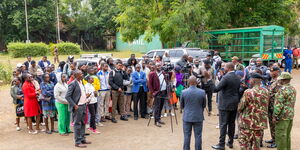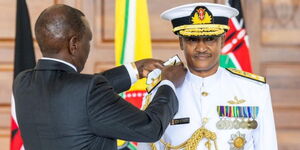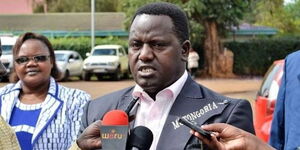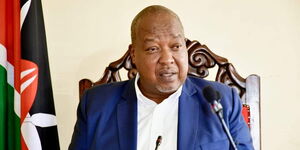The United States and Panama have written to the United Nations with key proposals that could see the almost 1,000 Kenyan-led Multinational Security Mission (MSS) boosted to reach upto over 5,000 officers.
In a draft resolution sent to the U.N., the two nations propose that the mission be fully converted into a force in cooperation with Haiti’s government for an initial period of 12 months, according to The Associated Press.
However, despite not being clear whether Kenya could still be needed to contribute more of its officers, the proposal also extended appreciation to the Kenyan men and women who have been in the country for the last year for their efforts to try to suppress the gang violence.
Recently, the U.S., which is one of the countries that is currently actively supporting the mission in terms of equipment and enforcement infrastructure, indicated that it wanted a different country apart from Kenya to now lead the mission under the renewed mandate.
The proposed changes are part of a bigger restructuring aimed at giving the mission renewed momentum in combating Haiti’s armed gangs, according to new plans by President Donald Trump's administration.
Speaking at an Organization of American States meeting last month, U.S. Deputy Chief of Mission Kimberly Penland revealed that Washington is drafting a resolution for the United Nations Security Council to “properly resource” Haiti’s fight against gang territorial control, according to the Miami Herald.
Additional Mandate
According to the proposed changes, the force would be able to detain and arrest Haitians just as the local police in the Caribbean nation.
It states that the force would consist of 5,500 uniformed personnel and 50 civilians who would be paid from voluntary contributions.
The resolution also would authorise contributing nations to the new force to conduct independent, intelligence-led targeted counter-gang operations to neutralise, isolate, and deter gangs that continue to threaten the civilian population, abuse human rights, and undermine Haitian institutions.
Kenya, following an agreement between President William Ruto and the then U.S. President Joe Biden, first arrived in Haiti in June 2024, and the force was supposed to have 2,500 troops, but it has been plagued by a lack of funding, and its current strength is below 1,000.
According to the AP, the gangs now control 90 per cent of the capital, Port-au-Prince, and have expanded their activities, including looting, kidnapping, sexual assaults, and rape, into the countryside.
Additionally, Haiti has been under the transitional leadership of Prime Minister(s) and has not had a president since the assassination of President Jovenel Moïse in 2021.












